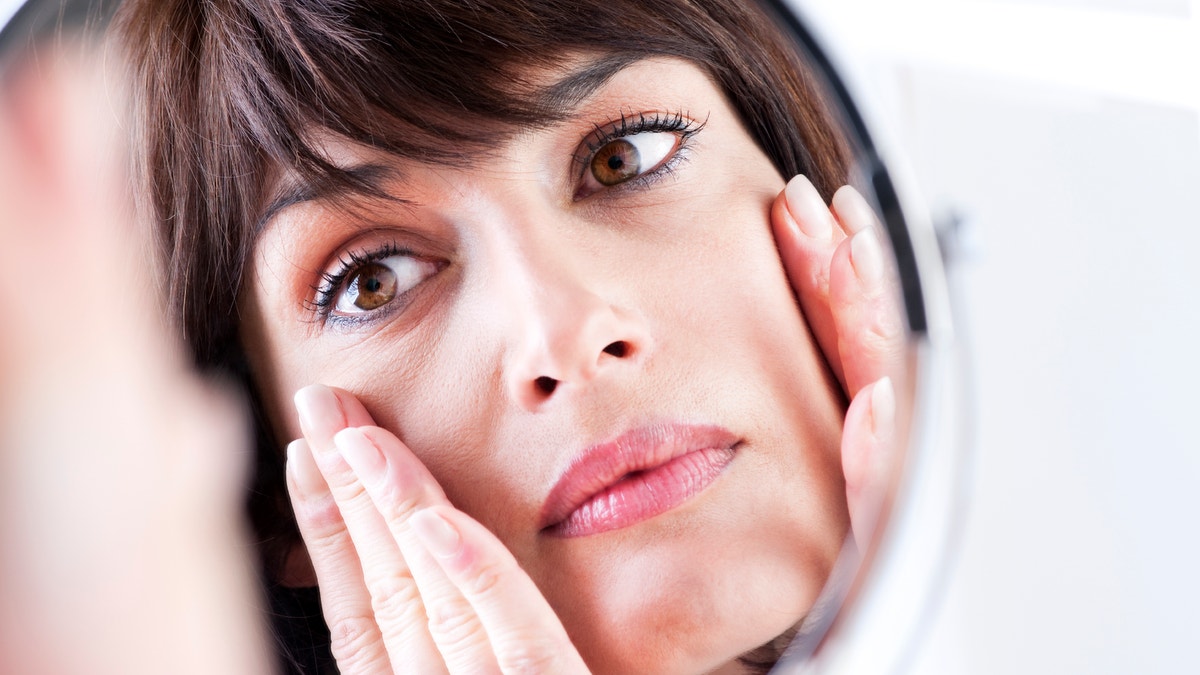
(iStock)
Crow’s feet, laugh lines, and rings circling your neck might seem like inevitable parts of getting older. But the passage of time isn't the only reason you're suddenly seeing your mother in the mirror—and it might not even be the most important one. While genetics and aging certainly play a role, so do many other factors that you're probably not paying enough attention to. Here are five to target. Read on, make a few changes, and get ready to turn back the clock (or at least slow it down!).
Your daily moisturizer is missing a key ingredient.
"Ninety percent of the visible signs of aging come from unprotected ultraviolet light exposure," said Dr. Mona Gohara, an associate clinical professor of dermatology at the Yale School of Medicine.
Part of the problem is that too many people save sunscreen for hot summer days and forgo it the rest of the time. "It's not just for the beach or pool," Gohar said. "You're getting UV exposure taking a walk outside or even driving to work in your car."
And while small amounts of sun might not leave you with a blistering burn, the damage adds up and can contribute to making your skin look prune-like at any age. The obvious fix: Never leave home without SPF. (Looking for anti-aging advice that works? Prevention magazine has smart answers—get 2 FREE gifts when you subscribe today.)
You have a pasta habit.
You already know that sugar is bad news for your waistline, but you might be surprised to learn that it can also mess with your complexion.
"Your skin is an organ, and sugar isn't good for any organ," Gohara said.
She explained that sugar—along with other high-carb, high-glycemic foods—promotes skin inflammation as well as a process called glycation. "It creates molecules that bind to collagen and elastin and weaken them." Consider this just another reason to swap the white bread and pasta for whole grains. (This haircut will make you look 10 years younger!)
You live in a city.
Watch out, urban dwellers: Polluted air is bad for your skin as well as your lungs. Research has found that people who are exposed to more soot, automobile exhaust, and other common environmental pollutants are more apt to develop age spots and pronounced wrinkles. While relocating to the country might not be on your agenda, Gohara said that eating antioxidant-rich foods—such as fresh berries, leafy greens, and fatty fish—can help. So can using skin-care products that contain antioxidants (such as vitamin C serums). She recommends SkinCeutical serums, which she says have been specifically tested for their ability to combat pollutants.
You watch Netflix until the wee hours.
Constantly feeling frazzled and not getting enough shut-eye? It's a bad combo that leads to elevated levels of cortisol, a pro-inflammatory stress hormone that contributes to wrinkles. Skin also regenerates itself while you're sleeping, so if you're not snoozing enough, you're missing out on that restorative process.
"The term 'beauty sleep' is legit," Gohara said. (Do any of these 10 Silent Signals You're Way Too Stressed sound familiar?)
You smoke cigarettes.
If the increased risk of cancer, heart disease, and various lung ailments isn't enough incentive to give up cigarettes, how about the fact that they'll make you look old? Smoking does a double-whammy on your skin, Gohara said: "By physically pursing your lips around a cigarette, you end up with fine lines around your mouth. Plus, the chemicals harm your skin, making it look gray and leathery." The upshot is that it’s not too late to stem the damage, though the sooner you take action, the better. (Got skin tags? Here’s the best way to get rid of them.)








































